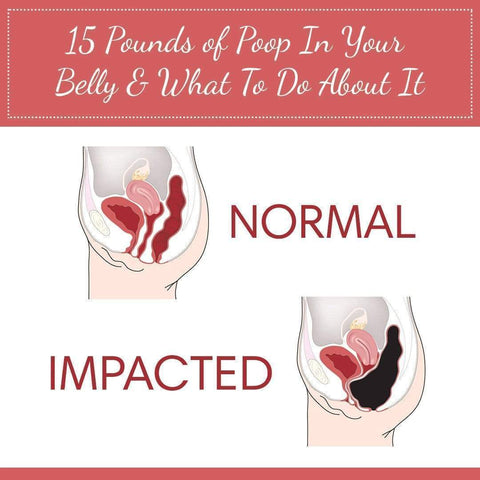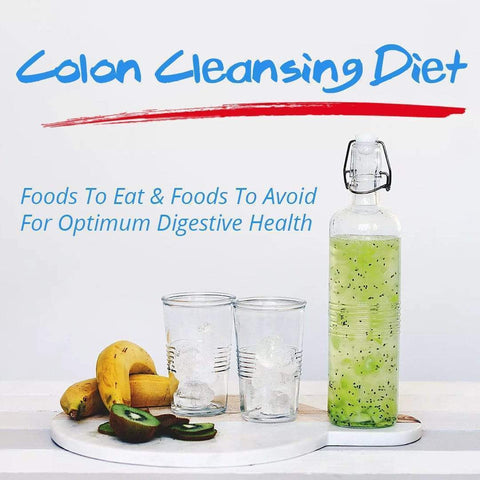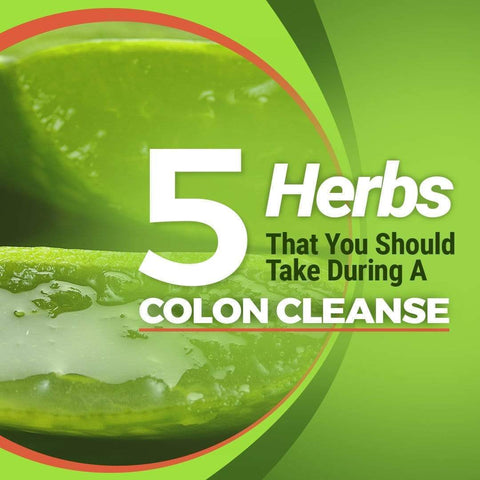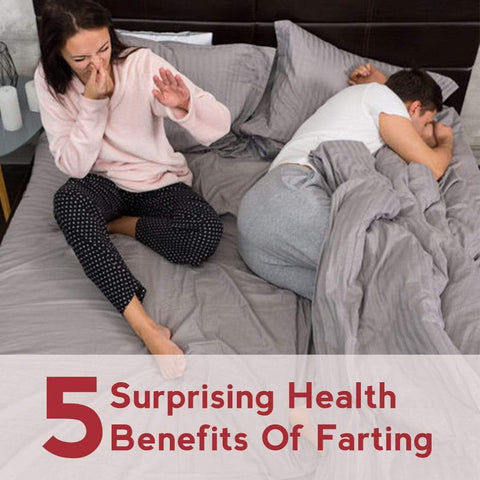 Better brace yourself for this one: Most of us need to fart more!
Better brace yourself for this one: Most of us need to fart more!
No, that doesn’t mean we have to do it in social situations when others are around. But it does mean that we should “let loose” whenever we need to – and don’t hold it in!
Holding In Farts Can Harm You!
In order to understand the benefits of farting, it’s important to note how holding in the gas can harm you. Just because forcing yourself to not fart hasn’t been studied in any medical study doesn’t mean you can’t use common sense to determine what could happen if you don’t let it out. Also, professional physicians and researchers have weighed in on the subject.
Where Farts Come From
Intestinal gas is the result of digestion of food. It’s a complex interaction between the bacteria in your gut, which make up your microbiome, and the fiber content of the food you have eaten. The gas may also come from the actual foods you eat - onions, cabbage, broccoli, brussels sprouts and cauliflower rank as the top hydrogen sulfide gas-producing foods.1 In other words, they produce gas by themselves - without the help of bacteria.
Some gas is a natural byproduct of digestion but when someone has digestive disorders, there’s a lot of gas produced from incomplete digestion. Also, specific intolerances like lactose (in milk) or gluten (in wheat and rye) can cause excessive gas production.
You may not want to hang out with a “herd” of people with digestive disorders for long periods of time – they fart more than normal. It’s not just the putrid smell that is unsettling. Every fart contains a lot of bacteria that is released explosively from the rectum. There could be high counts of some disease-causing bacteria in the air you end up breathing in!
Despite the bothersome qualities of flatulence, it is important to let it out. And the presence of some gas can even be a good sign for your health.
Exclusive Bonus! Download the FREE report ‘4 Steps To Naturally Cleanse And Detox Your Colon (The Simple Way To Have More Energy and Improve Your Health)’ by clicking here.
So the big question is how does not farting hurt me? Well, take a look
1. If the gas doesn’t get out, you’ll become bloated.

Now don’t worry because you’ll never take off from the ground – although those yogis that levitate should really be investigated for holding in their farts.
But seriously, have you ever seen someone with a very large belly while the rest of their body seems normal? Part of that big belly is no doubt accumulated farts that weren’t allowed to get out. Patients with irritable bowel syndrome, for instance, have “impaired gas transit,” meaning that gas isn’t released from the anus and/or gas is distributed unevenly.2 And this lack of gas evacuation can cause bloating.
Along with clinical evaluation of bloating, colon hydrotherapists are well aware of gas buildup. They’ll ALWAYS tell you more than you want to know about farts, poop, and bowel habits.
Many years ago when I was getting a colonic, the colon hydrotherapist told me, “Watch the pressure meter as we start. When it goes up really high, it’s gas.” Sure enough, when the pressure meter rose, it was accompanied by the feeling that I was about to burst. It was very uncomfortable, like having a fart waiting for its release. She had to let the trapped gas out slowly; otherwise, it could result in a blowout, damaging part of the intestines.
One advantage of the colonics is that it “deflates” someone by releasing the gas build up. Once the deflation is complete, it is easier to sleep at night, think more clearly, be more productive, and look more radiant.
2. The gas causes pain and might make you moody.
Gas build up can cause mild to severe pain. If it gets bad, the sufferer will experience nausea and vomiting and may require medical imaging to determine if a blockage is causing the gas build up.3
Also, being full of gas might make you moody. Some studies have correlated gas and bloating with depression and anxiety.2 It might be a chicken or egg question - which came first? The gas or the moodiness. However, generally, it is known that an imbalance in the microbiome (the bacteria) in your gut can change brain function by altering neurotransmitter synthesis and inflammation.3 And certain types of unwanted microorganisms, like methanogenic archaea, can cause gas and interfere with this microbiome balance.2
3. The gas pressure most likely causes outpocketing of the intestinal wall.

Diverticulosis is a disease where pockets form in the intestinal wall. The wall actually balloons out and then bacteria are trapped, causing infections, severe pain, diarrhea and/or constipation. How does the wall balloon out? Common sense will tell you that it’s due to inordinate amount of pressure. Where does the pressure come from – possibly gas.
In fact, gas retention is thought to be a major factor in the development of diverticulitis.4
4. Holding in gas could raise blood pressure.

Although studies comparing people who release gas versus those who don’t are lacking, a team of physicians writing for the New Zealand Medical Journal took on the issue. They discussed the probable drawbacks of holding in gas. Importantly, they conclude that you should not hold it in, but let it rip!
Raised blood pressure is one side effect of gas-filled intestines.4 If a person already has high blood pressure or cardiovascular disease, this increase in blood pressure could prove dangerous or fatal. Don’t risk your life because you’re embarrassed to fart!
5. Other Cardiovascular Complications
The same team of physicians warn that holding in gas can cause two other dangerous complications: elevated pulse and decreased blood oxygenation which are the body’s response to a distended gut.4 Both of these complications can increase the chance of “serious” problems like heart attacks and strokes.4 Essentially, not farting might just stress the heck out of your cardiovascular system.
Share the Gift of Good Health
The importance of farting should be clear at this point. It seems like such a trivial thing, but you can see how holding in gas can affect your guts and even your whole body.
In order to have a healthy gut, cultivate a beneficial bacteria presence in your gut by eating plenty of fibrous foods like fruits, veggies, and whole grains. This promotes the growth of good bacteria that is likely to keep the bad bacteria at bay. Remember, this bad bacteria can promote bloating and too much gas.
So if farting is frowned upon by your friends and family, then share this article and offer them the gift of good health.
For general intestinal health:
Nutracraft offers nutritional supplements that aid in the all-important health of your gastrointestinal system.
Probio-40 is a high-potency probiotic containing 40 billion beneficial bacteria. It offers support for stomach bloating and gas relief, and it aids digestion and bowel and Candida issues. It helps establish good bacteria and makes less room for bad bacteria.
Nutracraft’s ColonClean is a supplement that keeps things moving in your GI tract. It is specially formulated to support your digestive system and flush harmful waste from your body with natural, pure and proven ingredients that will gently remove the toxins in your body.









